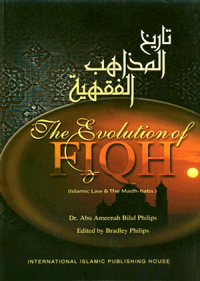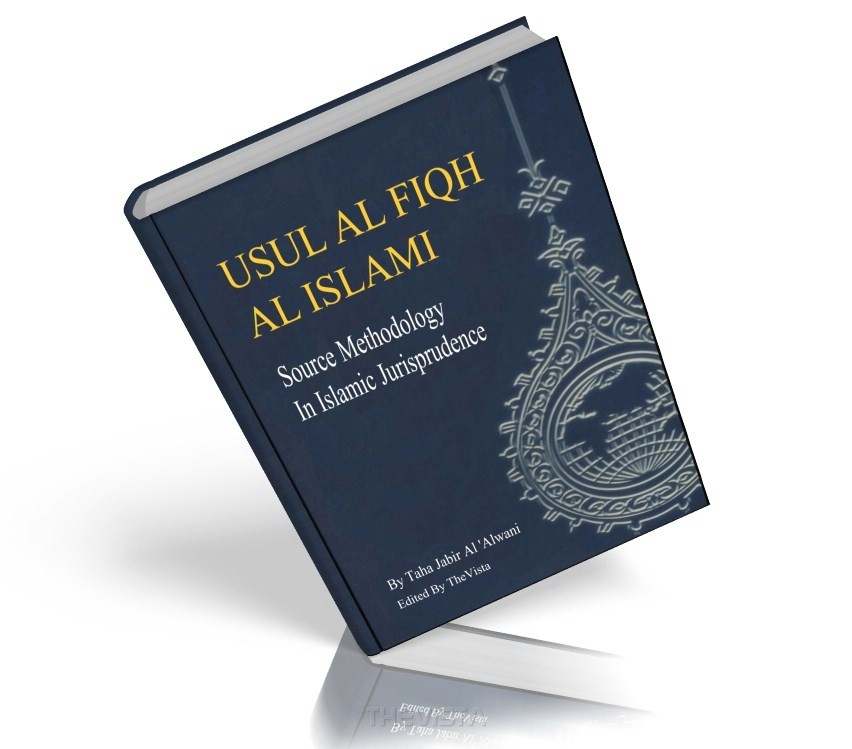|
|
WorldOfIslam.info | Islamic Ebooks about Law, download your ebooks for free
New Page 1
|
/
(10)
/ (1) /
(17)
/
(31)
/ (4) /
(3) /
(3)
/ (2) /
(15) /
(5) /
(8)
/ (3)
/ (18) / (2)
/ (2)
/ (8)
/ (1) /
(13)
/ (10)
/ (13)
/ (3)
/ (7)
/ (2)
/ (2)
/ (4)
/ (3)
/ (39) / (3)
/ (7)
/ (1)
/ (8)
/ (2) /
(3) /
(5) /
(6) /
(13) /
(7) /
(8) /
(8) /
(2) /
(51) /
(15) /
(4) |
|
The Evolution of Fiqh

In this book the
author presents a brief overview of the
historical development of Islamic Law and its
schools. The book identifies the main reasons
for the appearance of the Madh-habs and the
factors leading to differences among them.
|
|
Fiqh us Sunnah
.jpg)
As- Sayyid Sabiq |
Language: English | Format: PDF | Pages: 448 |
Size: 3.5 MB
Fiqh-us-Sunnah was written by Sayyid Saabiq
(1915-2000 C.E.), he wrote the book in Arabic at
the request of Imam Hassan al-Banna, the founder
of the Muslim Brotherhood (Ikhwan). Every Fiqh
ruling in the book goes back to the Qur�an and
Sunnah and Sabiq dealt with all four madhahib
objectively, with no preferential treatment to
any.
|
Al-Fiqh Al-Akbar

Imam Abu Hanifa |
Language: English | Format:
PDF | Pages: 22 | Size: 1 MB
Al-Fiqh al-Akbar is one of
the earliest texts written
on Islamic �creed and one of
the surviving works of Abu
Hanifa, the Great Imam of
jurisprudence and theology.
Studied for centuries in the
Muslim world, Al-Fiqh
al-Akbar offers a more
nuanced, textured approach
to understanding divine
oneness (tawhid), the focal
point of Islamic belief. It
refines one�s understanding
of the Creator, the
messengers and divine
communication, and enables
one to gain much-needed
insight into the realities
of this life and the events
of the hereafter.
Al-Fiqh al-Akbar not only
improves one�s understanding
of �aqida and deepens one�s
appreciation of his or her
beliefs, but it endeavors to
address questions, which, if
left unanswered, could leave
insidious doubt and cause
communal division. Such
questions include: Where is
Allah? Does Allah evolve?
What constitutes true
Islamic belief? Are prophets
capable of sinning? Is there
creation beyond what we see?
What comes after death?
|
|
Muslim International Law (Kitab al-Siyar al-Saghir)

By Imam Muhammad ibn al-Hasan Ash-Shaybani. Muslim
International Law may be defined as: That part of the law and custom of
the land and treaty obligations which a Muslim state observes in its
dealings.
Imam Muhammad ibn al-Hasan Ash-Shabani- was a pupil
of Abu Hanifah and heard hadith from Mis�ar ibn Kidam, Sufyan ath-Thawri,
�Amr ibn Dinar, Malik ibn Maghul, Imam Malik ibn Anas (, al-Awza�i,
Rabi�ah ibn Salih, Bakir and Qadi Abu Yusuf. He resided in Baghdad and
narrated hadith there. He was Muhammad ibn al-Hasan ash-Shaybani
His kunya was Abu �Abdullah. He was born in 132 and
died in 189 AH. He was only about eighteen years old when Abu Hanifa
died and had not been with him for a long time, but nonetheless he
compiled a more complete study of the fiqh of Iraq than Abu Yusuf. He
took from ath-Thawri and al-Awza�i, and travelled to Malik and learned
the fiqh of hadith, transmissions and the opinions of Malik, after
having learned fiqh of opinion from the Iraqis. �
|
Fiqh Made Easy

In this work, the world- renowned scholar of
comparative fiqh, Dr. Saalih al-Sadlaan of Muhammad ibn Saud Islamic
University discusses the most important issues of fiqh.
|
Fiqh us-Sunnah (The Principles Of Fiqh )

Sayid Sabiq | Language: English | Format:
PDF | Pages: 383 | Size: 5 MB
Fiqh us-Sunnah: This is a brief book concerning
usoolul-fiqh (fundamentals of jurisprudence), uncomplicated in
wording, clear in meaning, and useful in learning its rulings for
whosoever contemplates its meanings. We ask Allaah that He benefits
both its compiler and its reader. Indeed He is the Most Generous.
|
Usul Al-Fiqh Al-Islami: Source Methodology In
Islamic Jurisprudence

Taha Jabir Al �Alwani | Language: English |
Format: PDF | Pages: 41 | Size: 1.5 MB
We present this study to those Muslim youth who are searching for a ray
of light in the deepest darkness that surrounds us, and who are seeking
a solution and a way out of the crisis that currently overwhelms us; in
the hope that it may be of benefit to them, in Sha�a Allah. (God
willing). The research for this work originally formed part of the
studies I undertook in Islamic Jurisprudence for the doctoral program at
Al Azhar University in 1392/1973. On the occasion of the Second
International Conference on Islamic Thought, held in Islamabad, Pakistan
in 1402/1982 on the subject of the �Islamization of Knowledge�, material
from this thesis was presented in a revised form.
|
| |